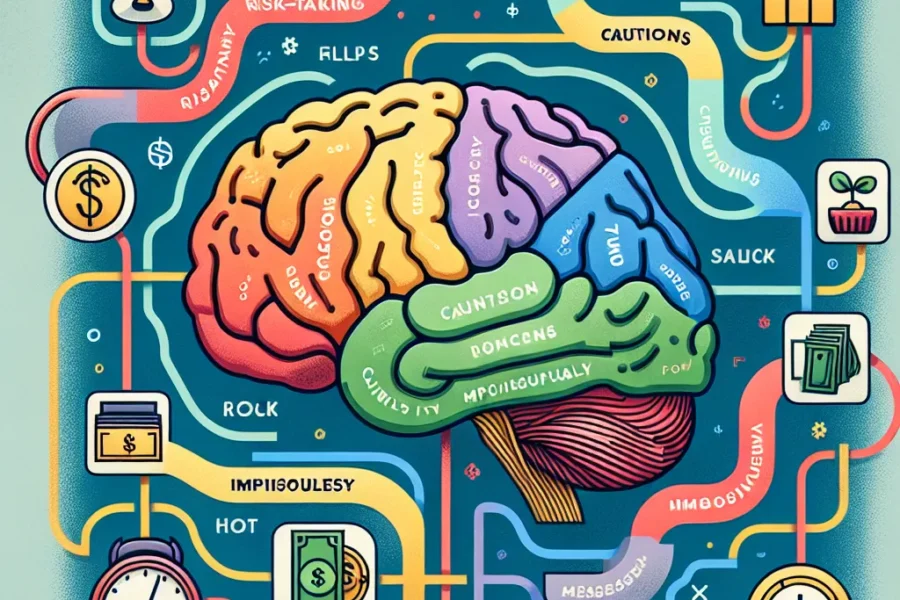Personality and Criminal Behavior: A Psychological Study
Understanding the nexus between personality and criminal behavior has been a focal point of psychological studies for decades. Researchers across the globe are continually trying to decipher the traits that predispose certain individuals to commit illegal acts. The application of psychological theories to the realm of criminology has provided insight into the complex interaction between individual personality characteristics and the propensity towards criminality.
Personality traits shape our responses to the environment, influence our decisions, and fundamentally affect our behavior. Over the years, various psychological models have explored the connection between these traits and criminal behavior, including the ‘Big Five’ personality traits, the Eysenck’s three-factor model, and the dark triad of personality. This article delves into the ways in which personality can be an indicator of criminal tendencies and the implications of these findings in the justice system and crime prevention strategies.
### The Big Five Personality Traits and Criminal Behavior
The Big Five personality traits, also known as the Five Factor Model, encompass openness, conscientiousness, extraversion, agreeableness, and neuroticism. Various studies have demonstrated that certain traits like low agreeableness and low conscientiousness are frequently associated with criminality. Offenders typically score lower on these traits compared to the general population.
Low agreeableness is characterized by a lack of trust, empathy, and cooperation, which can result in hostile behaviors and a tendency to manipulate others. Conscientiousness involves discipline, organization, and goal-oriented behavior. A lack of conscientiousness can manifest in impulsivity and rule-breaking, traits often seen in criminal profiles.
### Eysenck’s Three-Factor Model
Hans Eysenck proposed a three-factor model of personality that includes psychotism, extraversion, and neuroticism (PEN). According to Eysenck’s theory, individuals with high levels of psychotism exhibit aggressive, impersonal, and antisocial behaviors – all of which can be relevant in predicting criminal behavior. Eysenck also posited that the combination of high extraversion and high neuroticism could create a volatile mix that might predispose individuals to criminal activity due to their propensity for thrill-seeking and emotional instability.
### The Dark Triad
The dark triad is a term used to describe a trifecta of negative personality traits: narcissism, Machiavellianism, and psychopathy. These traits have been strongly associated with both white-collar and violent crimes. Psychopathy, in particular, is characterized by a lack of empathy and remorse, superficial charm, and a manipulative behavior, which can be especially predictive of criminal behavior. Machiavellianism involves a manipulative and deceitful nature, while narcissism encompasses a grandiose sense of self-importance. Individuals with high levels of these traits are often willing to exploit others for personal gain, which may lead to criminal conduct.
### Genetic and Environmental Influences
While personality traits play a significant role in criminal behavior, genetics, and environment also hold substantial influence. Genetics can predispose an individual to certain personality traits, but environmental factors such as upbringing, education, and peer influence can shape or alter those traits. A combination of unfavorable genetic predispositions and adverse environmental factors can increase the risk of an individual engaging in criminal activities.
### The Role of Psychopathology
Psychopathology refers to the study of psychological disorders and abnormal behaviors. There is often an overlap between certain personality disorders and criminal behavior—such as antisocial personality disorder (ASPD). Individuals diagnosed with ASPD have an increased likelihood of violating the law and engaging in criminal activity, as their behavioral patterns are characterized by disregard for social norms, impulsivity, and aggressiveness.
### Implications for the Justice System
The psychological study of personality and criminal behavior has profound implications for the criminal justice system. By understanding the psychological underpinnings of criminal behavior, there can be better identification, rehabilitation, and prevention strategies. Profiling based on personality traits can assist law enforcement in identifying likely suspects and understanding criminal motives, while correctional psychology can create tailored rehabilitation programs to address specific personality traits of offenders.
### Crime Prevention and Rehabilitation
Effective crime prevention strategies begin with early intervention. Identifying at-risk youths based on their personality traits and providing them with supportive and corrective experiences can deter future criminal activity. Moreover, rehabilitation programs that target the modification of problematic personality traits hold the potential to reduce recidivism. Cognitive-behavioral therapy (CBT), for instance, is a psychotherapeutic approach that can help individuals become more aware of their thoughts and feelings and, in turn, make more constructive behavior choices.
### Limitations and Ethical Considerations
While understanding personality traits can be helpful in predicting criminal behavior, there are limitations and ethical considerations. Profiling based on personality can lead to stereotyping and discrimination. There is a danger of oversimplifying complex human behavior and neglecting the nuanced factors that contribute to criminality. In addition, interventions should always respect individual rights and maintain the dignity of those involved.
### Conclusion
The relationship between personality and criminal behavior presents a compelling area of study within psychology. By exploring the various personality traits and their connection to criminality, we gain insight into the motivations behind illegal activities and better understand how to mitigate and prevent them. As research continues, it is essential to approach the topic with caution and sensitivity, ensuring that findings are used to promote justice, rehabilitation, and social good, rather than discrimination or injustice. The bridge between psychology and criminology offers a promising pathway to creating more effective justice systems and safer communities.



Leave a Comment